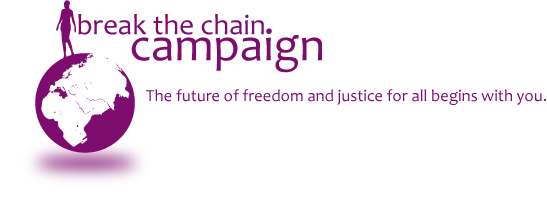This International Women’s Day: Lost In Detention
 Tuesday, March 6, 2012 at 1:38PM
Tuesday, March 6, 2012 at 1:38PM
By Kaitlin Owen
This International Women’s Day is a blog series featuring the opinions of BTCC advocacy interns and staff related to women’s rights in the US and around the world.
Tomorrow night, Domestic workers health Center will be hosting a screening of the PBS special “Lost in Detention” at the IPS conference room. “Lost in Detention,” a documentary done by Frontline and the American University Investigative Reporting Workshop, is the end result of a year-long study into the implications of the Obama administration’s harsh crackdown on immigration enforcement.
As a presidential candidate, Obama ran on a platform that promised immigration reform. Now, almost four years later, the Obama administration has deported over one million people – more than any other administration in the history of the United States. Once a major campaign promise, Obama is unable to get any progressive or moderate immigration reform passed in Congress. How does someone go from a major campaign promise to executing the exact opposite?
Washington has been unable to enact new immigration policy for years. If change is impossible with a Republican-controlled Congress, the Obama administration acknowledges the responsibility it has to enforce the laws that are currently in place. As Gary Segura, a political scientist at Stanford University comments, “in the absence of reform, we are left with enforcement on steroids.”
But at what cost does this harsh enforcement come? A couple of the far-reaching implications that are highlighted in Frontline’s documentary include Secure Communities and detention centers.
The Secure Communities program allows law enforcement at the local and state levels to crosscheck fingerprints of anyone booked with the federal immigration database. The goal is that the worst type of criminals will then, at the same time, be checking their immigration status – ensuring that if one of these criminals is undocumented, they are deported instead of staying in the US prison system.
This noted explanation of the Secure Communities program is idealistic, at best; critics of the program say that the program has swept up thousands more than just hardened criminals. Some may brush this off as “collateral damage” – but is even one life ruined too excessive of collateral damage?
In detention centers, detainees are not guaranteed access to a lawyer. These centers have become more like permanent structures, with the government out-sourcing to third-party vendors. The “politics of immigration are lost in detention centers.” When women and men are sexually assaulted and beaten, they are threatened to not file complaints. Without access to lawyers or anyone who can ensure that basic human rights of these individuals are respected, how can we really claim to know that these detainees are safe?
“This year, about 400,000 undocumented immigrants will be detained and deported.” At what ethical cost does “protecting the public” and “strengthening border security” come? Tearing apart families and stripping detainees’ basic human rights – are these acceptable collateral damages of the responsibility of enforcing current laws, or has the Obama administration gone too far? What, if anything, can be done to get progressive immigration reform passed in Congress? Will the Obama administration continue to run on immigration reform for the 2012 election, and if (in the future), will the current administration continue to try to change the immigration system?
These are the types of topics you can expect to be discussed tomorrow night, including a focus on the intersection between gender and detention in the United States. After the screening, we will be joined by a panel of experts for an open discussion on the film: Jennifer Podkul from the Women's Refugee Commission, Chris Harley from the National Asian Pacific American Women's Forum (NAPAWF), and Sarahi Uribe from the National Day Labor Organizing Network (NDLON). Space is limited, so RSVP to to reserve your space!




Reader Comments